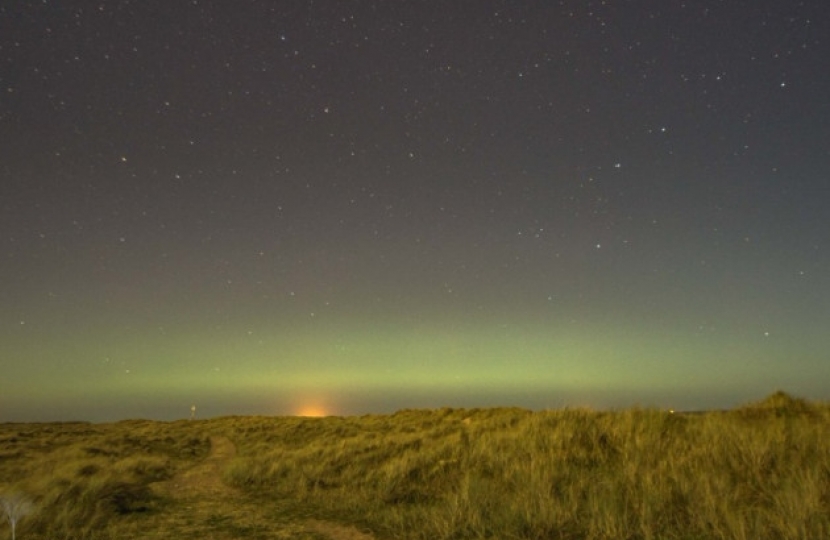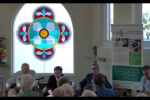James Wild MP for North West Norfolk attended the launch of a new All-Party Parliamentary Group for Dark Skies in the Houses of Parliament today.
The inaugural meeting set out the purpose of the APPG for Dark Skies:
- Highlight the importance of preserving the ability for citizens to see a dark sky at night;
- Promote the adoption of dark sky friendly lighting and planning policies;
- Protect existing UK Dark Sky reserves and support potential new reserves; and
- Collaborate with the International Dark Sky Association (IDSA) and countries hosting Dark Sky Reserves - Canada, France, Germany, Ireland, Namibia and New Zealand.
Dr Lucie May Green addressed the inaugural meeting. Dr Green is a Professor of Physics and a Royal Society University Research Fellow based at the Mullard Space Science Laboratory, UCL’s Department of Space and Climate Physics. She was also the first ever female presenter of the BBC programme, ’The Sky at Night’.
The APPG has already gained support from Parliamentarians across the political divide with a shared interest in providing dark skies over the UK. The UK has four internationally accredited Dark Sky Reserves which are the Brecon Beacons National Park, Exmoor National Park, Snowdonia National Park and the South Downs National Park with Gower. The first recognized Dark Sky Park is in Dumfries and Galloway.
North West Norfolk has two Dark Sky Discovery Sites. These are part of a nationwide network of places that are accessible by everyone and that have been recognised as places so dark, you can easily see the Milky Way or the constellation of Orion with the naked eye. The two sites are: RSPB Titchwell Marsh Nature Reserve; and Barrow Common, Brancaster
Speaking during a visit to RSPB Titchwell, James Wild MP said:
“I am delighted that the campaign to preserve our Dark Skies at night and to fight unnecessary light pollution has now reached Parliament.
“Norfolk is a fantastic place to view the night skies with an active community of astronomers. If we are to inspire future generations about the wonders of our universe then we must preserve the ability to see a clear night sky by reducing light pollution on the coast.
Light pollution is 100% man-made and is easy to remedy through improved design, better enforcement of planning guidelines and innovative new technologies.”
Find more information at:
https://www.darksky.org/our-work/conservation/idsp/
http://www.norfolkcoastaonb.org.uk/partnership/dark-sky-discovery-sites/1160
Join the King's Lynn and District Astronomy Society here:
http://www.westnorfolkastro.co.uk/
Read more:
https://townandaround.net/news/local-mp-backs-new-dark-skies-parliament…
The video shows astronomer Andrew Robertson and tells us what is so special about the north Norfolk Skies.


